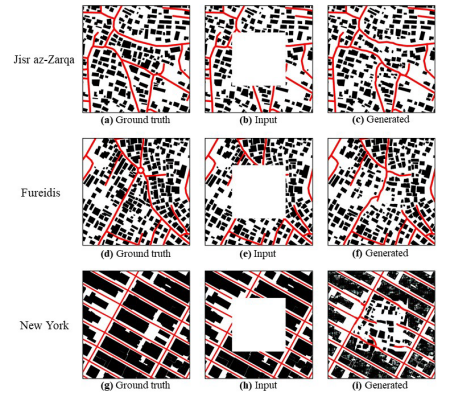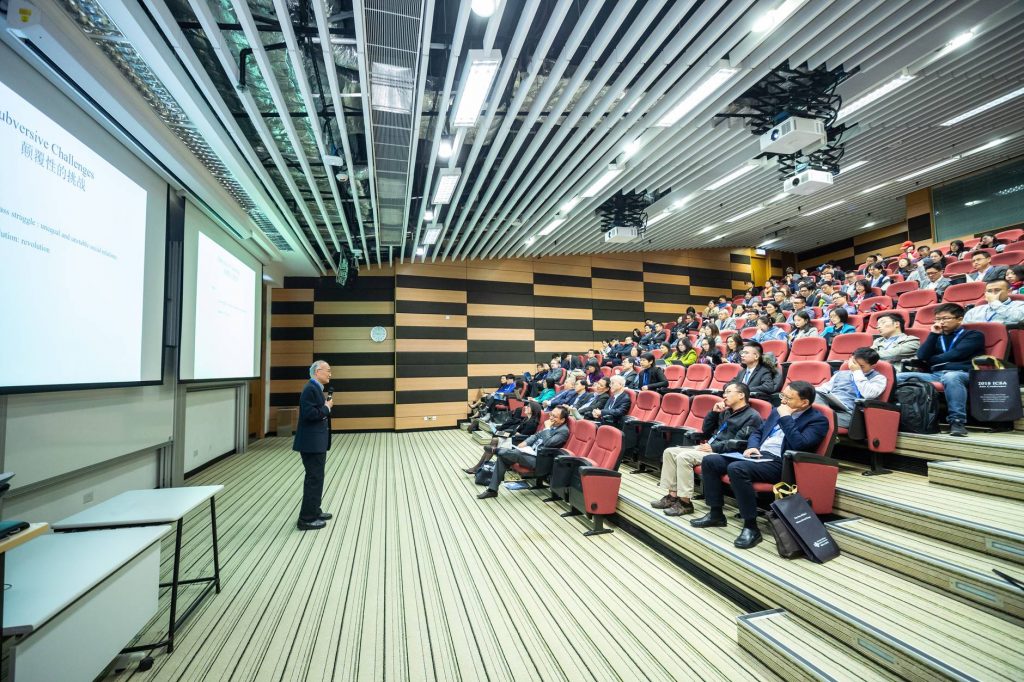
This study presents generative adversarial networks (GANs), a machine-learning technique that can be used as an urban design tool capable of learning and reproducing complex patterns that express the unique spatial qualities of non-planned settlements. We report preliminary experimental results of training and testing GAN models on different datasets of urban patterns. The results reveal that machine learning models can generate development alternatives with
high morphological resemblance to the original urban fabric based on the suggested training process. This study contributes a methodological framework that has the potential to generate development alternatives sensitive to the local practices, thereby promoting the preservation of traditional knowledge and cultural sustainability.
Citation:
Boim, A., Dortheimer, J., & Sprecher, A. (2022). A MACHINE-LEARNING APPROACH TO URBAN DESIGN INTERVENTIONS IN NON-PLANNED SETTLEMENTS. POST-CARBON, Proceedings of the 27th International Conference of the Association for Computer-Aided Architectural Design Research in Asia (CAADRIA), 223–232.
